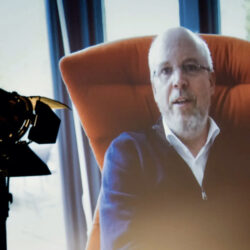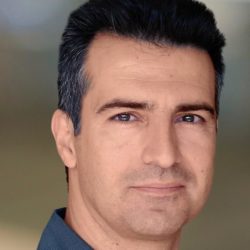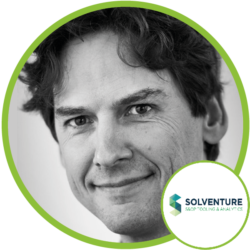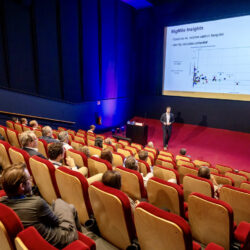Dirk Holbach, Henkel: ‘‘Sustainability is the biggest challenge of the next decade’’

Henkel is one of the frontrunners in supply chain innovation. At this year’s inNOWvate Supply Chain Event on 18 May, Chief Supply Chain Officer Dirk Holbach shared his vision and experiences of innovation: “We’ve moved away from the idea that the first solution has to be perfect right away. Now it’s about trying something, failing and learning from it.”
By Marcel te Lindert
Sustainability is the biggest challenge of the next ten years, according to Dirk Holbach, Chief Supply Chain Officer at Henkel Laundry & Home Care. “As a supplier of consumer packaged goods, we obviously pay a lot of attention to the packaging. One thing we’re investigating is the potential of bioplastics,” he said.
Transparency is an essential issue when dealing with retailers. “It always has been, but the pandemic has reinforced that. And on the consumer side, the ‘experience’ is a key topic that will continue to grow in importance in the years ahead.”
Agile approach
Innovation doesn’t just happen, so how does Henkel encourage employees to emerge from their own ‘bubbles’ and initiate new technologies and concepts? “We haven’t found the ‘golden egg’ yet, but we invest a lot of time and money in innovation and we’re trying to adopt an agile way of working. Among other things, it means that we’re moving away from the idea that the first solution to a problem has to be perfect right away, because that can mean you spend two or three years fine-tuning it first and we simply don’t have that much time. In addition, we’re trying to create an environment within our company that stimulates innovation related to digitalization. Besides our central team of 15 to 20 people, we’ve succeeded in involving several hundred employees from around the world in digital innovation – not only to make use of their knowledge, but also to introduce them to a different, more experimental way of innovating.”
Validated business case
Not every innovation is a success, so when does Henkel decide to pull the plug? “We start with a proof of concept at two or three locations and develop a minimum viable product based on that. Before we decide to continue with the innovation, we need to have a validated business case on the table – but we don’t always manage to produce one. For example, we experimented with drones for stock counting in our warehouses, but we weren’t convinced of the benefits – at least, not at that time. Another example is chemical fingerprinting: a great technology, but too expensive. Plus the start-up offering it wasn’t able to scale up, which we needed if we were to adopt the technology on a large scale. That’s a shame, but that’s how it goes. You try something, fail and learn from it.”
Two million euros
If Dirk Holbach were to invest two million euros of his own money in a supply chain start-up, he knows what he would focus on: “First of all I would invest in sustainability: the biggest challenge of the near future. I believe we’ll see more innovation related to this topic over the next ten years than in all of the past decades combined. After that, I would invest in end-to-end visibility combined with machine learning. There are many new solutions on the market that offer transparency of part of the supply chain, but not all of it. And my third focus area would be talent development, with education playing an important role. That’s crucial in today’s dynamic supply chains.”










